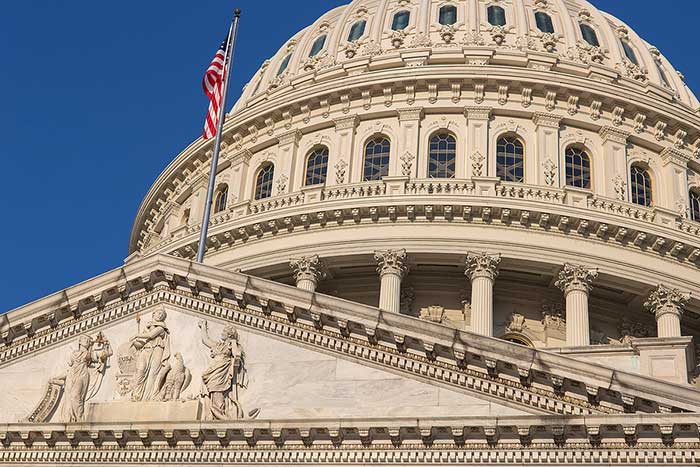The framers of the Constitution envisioned a three-branch system of the federal government that ensures proper checks and balances. One of these checks is the ability of Congress to compel executive branch cooperation. Upheld numerous times by the Supreme Court, Congress has broad powers to compel information and testimony from the executive branch.
At the same time, the executive branch can “fight back” against these Congressional powers by asserting a number of privileges (including Executive Privilege). As the country has seen in the last year, this can fight can sometimes drag on between the two branches. Here is a breakdown of the subpoena power of Congress, laid out by experienced attorney Samuel Dewey.
Congressional Investigative Power
The U.S. Constitution does not formally lay out a provision establishing Congress’ power to investigate. However, the judicial branch has continually upheld the essential power to investigate as an implied power given to Congress.
When Congress initiates investigations and hearings, it can compel testimony and gather information through the use of subpoenas. The Supreme Court just confirmed last year that these apply to the Executive Branch, too.
If a subject of a subpoena refuses to cooperate, Congress does have the power to compel compliance in three ways.
1. Inherent Contempt
Congress can rely on the constitutional authority it has first to detain and then imprison someone who refuses to comply with a subpoena. They can keep this person in prison until the person decides to comply with the demands. This power has not been used since 1935.
2. Criminal Contempt
Congress also has the power to issue a criminal citation for contempt to a member of the Executive Branch for anyone who refuses to comply with a congressional subpoena. This is generally ineffective as the criminal contempt citation goes to the Department of Justice to prosecute and the Department will not prosecute a citation where the President has asserted Executive Privilegel.
3. Judicial Branch
Congress can also turn to the judicial branch for help in enforcing a subpoena.
In such a scenario, Congress would have the ability to turn to a federal judge to order witnesses to provide requested information. But there are questions as to whether courts have jurisdiction to hear these cases absent new legislation (which the President would almost certainly veto).
As Samuel Dewey points out, this balance of congressional subpoena versus executive privilege is something that came up numerous times during former President Donald Trump’s time in the White House.
About Samuel Dewey
Samuel Dewey is a successful lawyer and former Senior Counsel to the U.S. House of Representatives Financial Services Committee and Chief Investigator and Counsel to the U.S. Senate Special Committee on Aging. Mr. Dewey specializes in: (1) white-collar investigations, compliance, and litigation; (2) regulatory compliance and litigation; and (3) complex public policy matters. Within these fields, Mr. Dewey is considered an expert in Congressional investigations and attendant matters. Mr. Dewey has a B.A. in Political Science, a J.D. from Harvard, and is admitted to practice law in Washington, D.C., and Maryland.









